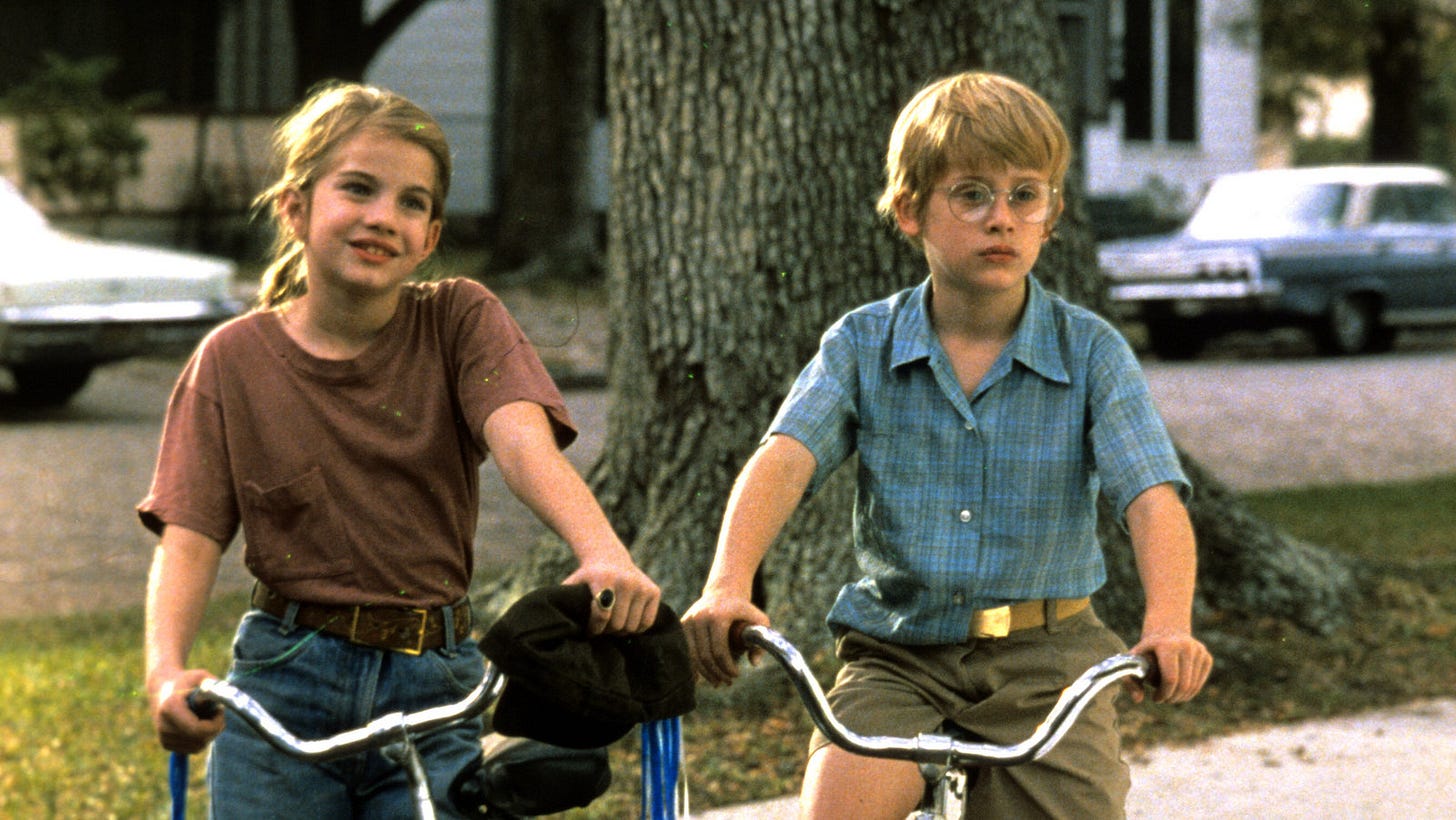My Girl: How Does a Child Process Grief?
In a house where death is a frequent visitor, how does she remind herself to live?
How does a child process grief? In a house where death is a frequent visitor, how does she remind herself to live?
This is the story of Vada, an eleven-year-old who lives in a funeral home with her dad (a mortician), her uncle and her mentally-ill grandmother. Vada’s mother died when she was young. So when Shelly, a mortuary makeup artist and receptionist, comes into their lives, Vada feels threatened and confused by Shelly’s relationship with her father.
If the story sounds too tragic and heavy, the film doesn't let it overwhelm the viewer. We see a warm, light-hearted journey of a little girl learning about love, loss, and processing grief through a little bit of poetry over her summer.
We see her struggle to accept change, to form friendships, to understand love, to come to terms with life, and with death.
We see her innocence when she falls in love with her teacher, when the relationship between her father and Shelly threatens her, when their passion confuses her, when the dead who arrive at her house daunt her, and when she visits the doctor everyday to check if death has finally got to her.
Vada visits a doctor along with her friend, Thomas J.:
So how does Vada process this concoction of feelings and emotions?
During her summer, Vada joins a poetry class taught by the teacher she has a crush on. In the beginning of the class, everybody is assigned to recite a poem. And Vada writes a joyful, innocent piece about ice cream.
Ode to Ice Cream, by Vada Sultenfuss
I like ice cream a whole lot.
It tastes good when days are hot.
On a cone or in a dish,
This would be my only wish.
Vanilla, chocolate, or rocky road,
Even with pie a la mode.
When she finishes, her teacher tells her, "It's very sweet, and it rhymes, and that's also good, but... You're not expressing to me what's in your soul. I want you to show me how you see the world. Your fears, your desires. Your innermost secrets."
And to this, Vada thinks, My fears and secrets? I'm afraid I killed my mother.
Vada has a talent for connecting concepts and expressing herself through words, but she does so only in her thoughts. In one scene where she's asking her father for money to join the poetry class, he tells her he'll see about it next summer. And Vada thinks, He forgot about the time I wanted to be a magician. I was really great at making myself disappear.
In another scene, the poetry group sits in a circle, eyes closed, holding hands, telling each other what they feel of the other person. Vada says she felt Justin's (the person sitting next to her) hangnail. Justin, however, tells her that a hangnail is insignificant. Vada thinks to herself, Gramoo once had a hangnail on her big toe. It got infected and travelled to her vocal cords. Ruined her singing voice. I don't think gramoo thought it was insignificant.
Vada keeps her feelings, her thoughts, her emotions, and her genius within herself — an effect of her father being aloof and never open to talking to her about anything.
Her courage to open up comes one night after a tragedy when she asks her father, "Did I kill my mother?"
Vada and her father have a talk:
This is when her father finally decides to face the truth. He doesn't try to keep death and grief away from her, doesn't pretend like nothing ever happened. Instead, he tells her that death is nobody's fault and that the memories of the dead are good. That when he sees a pretty flower or a beautiful sunset her mother would've liked, he misses her. Just like when Vada sees a climbing tree, she will miss the person she lost in the tragedy that occurred over the summer.
So at last, Vada writes a poem. A piece expressing what she feels in her soul. A soul that she connects to a willow tree that once sheltered her and her loved one.
Vada recites Weeping Willow:
Weeping Willow
Weeping willow with your tears running down,
Why do you always weep and frown?
Is it because he left you one day?
Is it because he could not stay?
On your branches, he would swing.
Do you long for the happiness that day would bring?
He found shelter in your shade,
You thought his laughter would never fade!
Weeping willow, stop your tears,
For there is something to calm your fears.
You think death has ripped you forever apart,
But I know he’ll always be in your heart.
The way to live life, and the way to deal with the woes and wonders it brings is summarized by Vada’s teacher at the end of his poetry class in these verses of a W.H. Auden’s poem The Novelist:
Encased in talent like a uniform.
The rank of every poet is well known;
They can amaze us like a thunderstorm,
Or die so young, or live for years alone.
He tells his class, “Be a thunderstorm… Be dangerous… and unpredictable. And make a lot of noise.”
When grief hits you, love confuses you, life overwhelms you, make some noise. Sing it if you want, write it down on paper and show it to the world, talk to a friend, scream it into a pillow—just make some noise.







